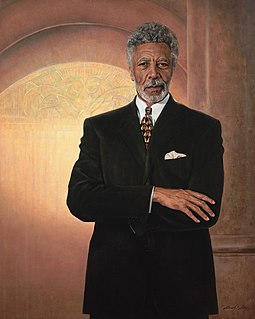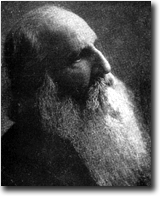A Quote by Abraham Joshua Heschel
Wonder or radical amazement is the chief characteristic of the religious man's attitude toward history and nature.
Related Quotes
The religious quality of Marxism also explains a characteristic attitude of the orthodox Marxist toward opponents. To him, as to any believer in a Faith, the opponent is not merely in error but in sin. Dissent is disapproved of not only intellectually but also morally. There cannot be any excuse for it once the Message has been revealed.
We still talk in terms of conquest. We still haven't become mature enough to think of ourselves as only a tiny part of a vast and incredible universe. Man's attitude toward nature is today critically important simply because we have now acquired a fateful power to alter and destroy nature. But man is a part of nature, and his war against nature is inevitably a war against himself.
The "sayings" of a community, its proverbs, are its characteristic comment upon life; they imply its history, suggest its attitude toward the world and its way of accepting life. Such an idiom makes the finest language any writer can have; and he can never get it with a notebook. He himself must be able to think and feel in that speech - it is a gift from heart to heart.
Technology is neutral and sterile. Now, technology is the nature of modern man; it is our environment and our horizon. Of course, every work of man is a negation of nature, but at the same time, it is a bridge between nature and us. Technology changes nature in a more radical and decisive manner: it throws it out.
The capacity for the accomplishment of religious virtuosos the "intellectual sacrifice" is the decisive characteristic of the positively religious man. That this is so is shown by the fact that in spite of (or rather in consequence) of theology (which unveils it) the tension between the value-spheres of "science" and the sphere of "the holy" is unbridgeable.








































